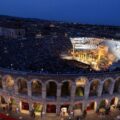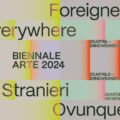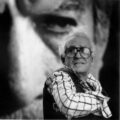Padova, among all its many beauties, is primarily known for its prodigious University!
The University of Padova is among the oldest in the world. Founded in 1222 by a real migration of students from the nearby university in Bologna, looking for a greater academic freedom, cultural and of expression. The motto of the University is in fact Universa Universis Patavina Libertas: whole, for everyone, the freedom in the University of Padova.
The first courses are civil and canon law, closely followed by medicine and arts. However, they remain distinct one from each other keeping the same privileges. Only in 1405, with the passage under the Republic of Venezia, the University of Padova took shape reaching its maximum splendor.
In 1493 the University is officially transferred to the Hospitium Bovis, at that time a building under an ox’s sign; this became the main seat still known as the Bo.
On the 15th of January 1595 Girolamo Fabrici d’Acquapendente inaugurates the first anatomical theatre in the world, which can still be visited today, which brings to Europe the teaching of modern medicine, thanks above all to famous doctors who teach in Padova.
In Padova also teaches Galileo Galilei who leaves a great influence in the research methodology in the scientific and naturalistic disciplines, even after his abandonment of the academic world.
Over the years, the University continued to stand out in Europe both in the natural sciences and in the humanistic ones, despite the political and economic decline of the 1700s. This thanks to teachers of enormous value. More traumatic, however, the moment of passage under the government of the Kingdom of Italy, which brings the suspension of 17 professors and the closure of schools of agriculture, veterinary and theology in addition to other reforms; Among these was the attempt to make Rome the central and most important university, with the transfer of many professors.
With the Law of May 12, 1872 n. 1821 the University of Padua is put on a par with the other existing in the kingdom and is applied to it the reform of higher education (Casati law) promoted in 1859 by Gabrio Casati. At the beginning of the 20th century, the Patavina mathematical school was one of the most important in Europe.
The University of Padova remains structured in only four faculties, each one with a President at the head: Law, Medicine and Surgery, Letters and Philosophy, Mathematical, Physical and Natural Sciences. Towards the end of the nineteenth century, however, the University of Padova begins a slow period of expansion that led to the creation of the faculties of Engineering (1876), Pharmacy (1933) and Political Sciences (1933).
Sometimes, in the streets of Padova, you may hear a “dottore, dottore, dottore del buso del cul, vaffancul, vaffancul.” (doctor, doctor, doctor of the asshole, fuck you, fuck you). Nothing serious: simply a new graduate that is joining family and friends. But this is not all: the latter have certainly prepared a graduation papyrus, that is a caricature of the new “doctor” with a series of rhymes that tell some anecdotes. Every mistake in reading you drink a sip of a carefully prepared alcoholic mix.
This practice, widespread and loved by students, originated in the sixteenth century, when graduations take place with great collective ceremonies involving the whole citizenship. The family and friends already put small posters to announce the degree and celebrate the student’s career. These sheets are, however, very distant from the current idea of papyrus: no drawings and no goliardic or satirical references.
In these days, until the 8th of October, through the Bo, you can take advantage of the interactive installation Sound-scape. The fragility of the territory told by the art of Emmanuele Panzarini in a dedication to the millions of trees felled by storm Vaia in 2018.
On the floor of the new courtyard, an aerial photograph depicting the semi-felled forest creates an accessible virtual space. Inside, Panzarini has distributed with geometric precision resonance cases obtained from the wood of the trees felled by storm Vaia. Here is the fundamental interaction: visitors’ phones will be the sound sources for these speakers.











